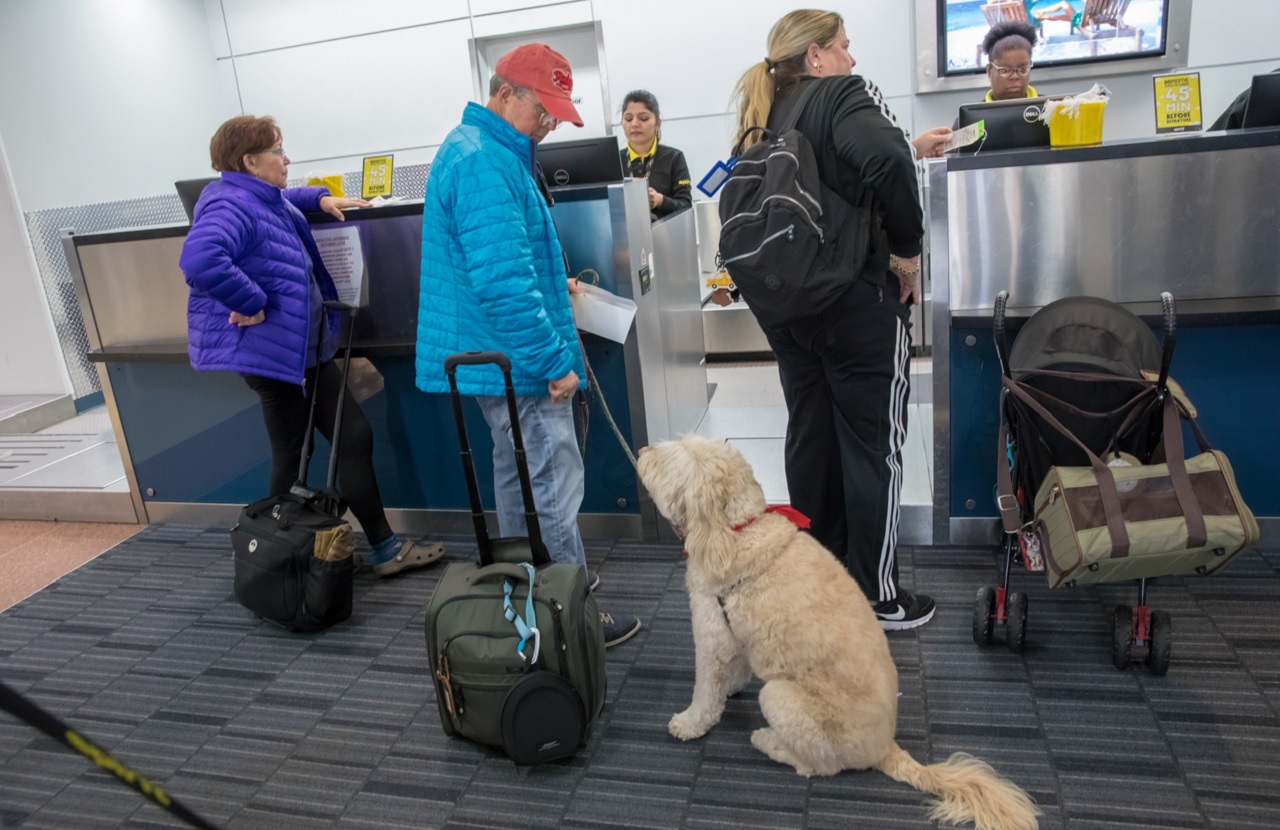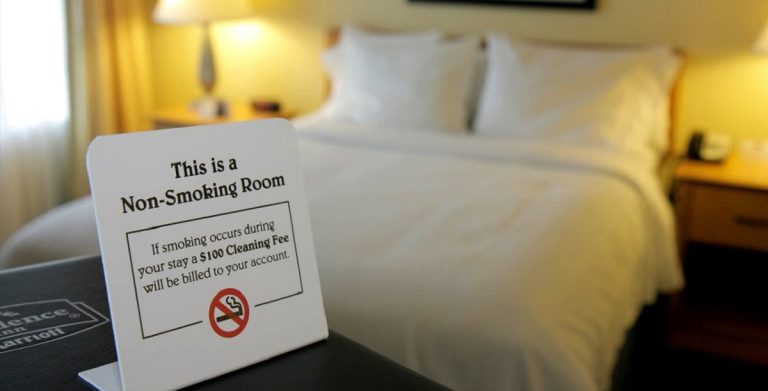Can Hotels Charge For Emotional Support Animals In Florida?
Yes, hotels in Florida can charge for emotional support animals (ESAs). Unlike service animals, which are protected under the Americans with Disabilities Act (ADA), ESAs don’t have the same legal standing.
This means hotels aren’t obligated to waive fees or accommodate them. Some hotels may allow ESAs, but they’re within their rights to apply charges or even refuse access.
If you’re planning to bring your ESA on your trip to Florida, it’s crucial to check the hotel’s policy in advance. Remember, while ESAs provide important emotional support, they aren’t legally considered service animals under Florida or federal law.
Understanding Emotional Support Animals (ESAs)

In Florida, hotels are not legally required to accommodate emotional support animals and can charge extra fees or even refuse to allow them on the premises.
This is because ESAs are not considered service animals under the Americans with Disabilities Act (ADA) and do not have the same legal protections in public accommodations.
However, the situation isn’t always straightforward, and there are some important nuances to understand.
Before diving into the specifics of Florida’s laws regarding emotional support animals in hotels, it’s important to understand what exactly an ESA is and how it differs from a service animal.
Definition of ESAs
An emotional support animal is an animal that provides comfort and support to individuals with mental or emotional disabilities.
These animals are not specifically trained to perform tasks related to a person’s disability, but their presence alone can help alleviate symptoms of conditions such as anxiety, depression, or post-traumatic stress disorder (PTSD).
Difference Between ESAs And Service Animals
While both ESAs and service animals provide support to individuals with disabilities, there are crucial differences between the two:
Service animals, typically dogs, are individually trained to perform specific tasks for people with disabilities. These tasks might include guiding a visually impaired person, alerting a deaf person to sounds, or helping someone with mobility issues.
Service animals are protected under the Americans with Disabilities Act (ADA) and are allowed in most public places.
Emotional support animals, on the other hand, do not require specific training and can be any type of animal.
Their primary purpose is to provide emotional comfort through companionship. ESAs do not have the same legal protections as service animals when it comes to public access.
Federal Laws Governing ESAs

Several federal laws come into play when discussing the rights of individuals with emotional support animals. Understanding these laws is crucial for both ESA owners and businesses like hotels.
Fair Housing Act (FHA)
The Fair Housing Act is a federal law that prohibits discrimination in housing based on disability, among other protected characteristics.
Under the FHA, individuals with disabilities are allowed to keep assistance animals, including emotional support animals, in housing with a “no pets” policy or breed restrictions. This law requires landlords to make reasonable accommodations for ESAs without charging additional fees.
Air Carrier Access Act (ACAA)
The Air Carrier Access Act previously required airlines to accommodate emotional support animals. However, in 2020, the U.S. Department of Transportation updated its rules.
Now, airlines are only required to accommodate service animals, not ESAs. Some airlines may still choose to allow ESAs, but they are no longer legally obligated to do so.
Americans with Disabilities Act (ADA)
The Americans with Disabilities Act is a comprehensive civil rights law that prohibits discrimination against individuals with disabilities in all areas of public life.
However, the ADA’s definition of service animals does not include emotional support animals. This means that under the ADA, businesses open to the public, including hotels, are not required to allow ESAs on their premises.
Florida ESA Laws

While federal laws provide a framework for ESA regulations, individual states may have their own laws that offer additional protections or clarifications. Let’s look at how Florida handles ESAs in different contexts.
Housing laws
Florida follows federal guidelines when it comes to housing and ESAs. In 2020, the state passed a law to clarify ESA rules in housing situations.
Under Florida law, landlords must allow emotional support animals in housing, even if there’s a “no pets” policy.
However, the law also outlines what constitutes appropriate ESA documentation and allows landlords to request such documentation if the disability is not readily apparent.
Travel laws
Florida doesn’t have specific state laws governing ESAs in travel situations. As such, the federal Air Carrier Access Act is the prevailing rule.
This means that airlines operating in Florida are not required to accommodate ESAs, though some may choose to do so.
Public Access Laws
When it comes to public access, Florida law aligns with the ADA. The state defines service animals as dogs (and in some cases, miniature horses) that are trained to perform specific tasks for individuals with disabilities.
Emotional support animals are not included in this definition, which means that public accommodations in Florida, including hotels, are not required by law to allow ESAs.
Can Hotels Charge for ESAs in Florida?

Now that we’ve covered the legal landscape, let’s address the main question: Can hotels in Florida charge for emotional support animals?
Hotel policies on ESAs
Since emotional support animals are not protected under the ADA or Florida’s public accommodation laws, hotels in the state have the right to set their own policies regarding ESAs.
Some hotels may choose to welcome ESAs without additional charges, while others may treat them as pets and charge accordingly.
Legal Requirements For Hotels
Legally, hotels in Florida are not required to accommodate emotional support animals. If a hotel does allow ESAs, they can charge pet fees, as ESAs are considered pets under the law when it comes to public accommodations.
Exceptions And Considerations
While hotels have the right to charge for ESAs or even refuse them, it’s worth noting that many establishments are becoming more pet-friendly in general.
Some hotels may be willing to waive pet fees for ESAs as a courtesy, especially if provided with proper documentation. However, this is at the discretion of the individual hotel and is not a legal requirement.
Rights and Responsibilities of ESA Owners
As an ESA owner, it’s important to understand both your rights and your responsibilities when travelling with your animal.
Obtaining Legitimate ESA Documentation
To have your animal recognized as an ESA, you need a letter from a licensed mental health professional stating that you have a mental or emotional disability and that the animal provides therapeutic benefit.
It’s crucial to obtain this documentation from a legitimate source, as there are many online services selling fake ESA letters.
Notifying Hotels About ESAs
When planning to stay at a hotel with your ESA, it’s best to contact the hotel in advance to inquire about their policies.
Be prepared to provide your ESA documentation if requested. Remember, while hotels aren’t required to accommodate your ESA, many may be willing to do so if given advance notice.
Liability For Damages Caused By ESAs
Even if a hotel allows your ESA, you are responsible for your animal’s behavior. If your ESA causes damage to the hotel property, you can be held liable for the costs of repair or cleaning.
Tips for Traveling with ESAs in Florida
Travelling with an emotional support animal requires some extra planning, especially in a state like Florida where ESAs don’t have the same legal protections as service animals.
Researching Hotel Policies
Before booking a hotel, research their pet policies. Many hotel chains have this information readily available on their websites. If you can’t find the information online, don’t hesitate to call the hotel directly.
Communicating With Hotels In Advance
Once you’ve found a hotel that seems ESA-friendly, contact them directly to confirm their policy and inform them that you’ll be travelling with an ESA. This gives the hotel a chance to prepare for your arrival and can help avoid any misunderstandings.
Understanding Your Rights And Limitations
Remember that while your ESA has protections in housing situations, these don’t extend to hotels. Be prepared for the possibility that some hotels may not accommodate your ESA or may charge additional fees.
Final Words
Navigating the world of emotional support animals in Florida can be complex, especially when it comes to hotel stays.
While hotels in the state are legally allowed to charge for ESAs or even refuse them, many establishments are becoming more accommodating to all types of animals.
The key to a smooth travel experience with your ESA is to plan ahead, communicate clearly with hotels, and understand both your rights and responsibilities as an ESA owner.
By doing so, you can ensure a more enjoyable and stress-free trip for both you and your emotional support animal in the Sunshine State.







